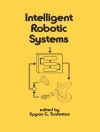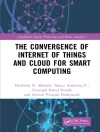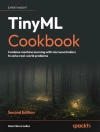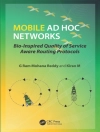Digital technology opens up extraordinary fields for applications that will deeply change the nature of jobs and trade, the very concept of work and the expectations of user-producers. The ‘masters of algorithms’ have disrupted production and services, and this trend will continue for as long as electric energy and the elements of Industry 4.0 are in continued development. Beyond data control, a power struggle is working its way through the links in the value chain: intermediation, control of resources and command over human and physical networks, as well as partnerships, creativity and the political system.
Industry 4.0: Paradoxes and Conflicts examines the need for a serious and technological review, as well as for research and training regarding citizenship and politics. This is a new situation in terms of relationships of competence and authority, which must be the subject of scientific as well as political reflections for the whole social body, which needs to be educated about choices.
Throughout the book, the author poses the following question: instead of submitting to choices, would it not be better to exercise foresight?
Tabella dei contenuti
Abstract vii
Foreword xi
Preface xv
Introduction xxiii
Chapter 1. Industry 4.0: Definition and the Acceleration of Innovations 1
1.1. General framework 1
1.2. Application areas 5
1.3. Dissemination of Industry 4.0 and the disciplines that contribute to its development 7
1.4. Artificial intelligence 13
1.4.1. General framework 13
1.4.2. Current limitations of AI 24
1.4.3. Learning with AI 27
1.5. The Internet of Things 30
1.6. Additive manufacturing 36
1.7. Robotization and automation 44
1.8. Current situation of Industry 4.0 48
1.8.1. Positioning 48
1.8.2. Industry 4.0 indicators 51
1.8.3. Some remarks 53
Chapter 2. Disciplinary Boundaries 67
2.1. A return to the notion of the boundary object 67
2.1.1. From the idea to its processing 68
2.1.2. The issue of convergence 74
2.2. Interdisciplinarity 85
Chapter 3. Technical Progress and Quality of Life at Work 95
3.1. General framework 95
3.2. Between acceptance and rejection, and between attractions and fears of technological progress 103
3.3. New organizations and new disorganizations 109
3.3.1. Co-working spaces 113
3.3.2. Connected workers 113
3.3.3. An obligation to train throughout life 114
3.3.4. The specific case of additive manufacturing 115
3.4. Environmental aspects 117
Chapter 4. Elements of Foresight and Possible Effects of Conceivable Scenarios 133
4.1. Major trends 137
4.2. Four scenarios 159
4.2.1. Introduction 160
4.2.2. The four scenarios 161
4.2.3. Blocking factors and probable scenario(s) 167
4.3. Possible effects on the development of the ‘Industry 4.0’ concept 170
4.3.1. Reminders on creative innovation 171
4.3.2. Scenario-Industry 4.0 relationships 178
Chapter 5. What Can Be Done? 193
5.1. The administrative path 193
5.2. Effects on work based on the current inertial civilizational model 196
5.2.1. A preconclusion 202
5.3. New organizations 207
5.4. Ways of resourcing European, national and/or individual innovation 212
5.4.1. Industry 4.0 and research 212
5.4.2. Disciplinary convergence 214
5.5. Convergences 217
5.5.1. A ‘bad’ example of convergence: NBIC convergence 217
5.5.2. What about ‘silent’ technologies? 224
5.5.3. The ‘boiling frog’ fable 227
5.6. Encouraging transformative, risky and interdisciplinary research 229
Conclusion 235
References 249
Index 309
Circa l’autore
Jean-Claude André is a process engineer and has a Ph D in Chemical-Physics, as well as a French Doctorate in Physics on the subject of light-matter interactions (photochemical engineering, chemical-physics, and signal processing and modeling additive manufacturing, which is a component of Industry 4.0).












